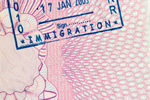Hints and tips on expat insurance needs

Hints and tips on expat insurance needs
Uncertainty is often the name of the expat game, with venturing into the unknown routinely throwing up a few problematic issues before, during and just after the move itself. However, most expats are able to sidestep any serious consequences and simply get on with living their lives in their new countries of residence, whether they’re working, studying or simply retiring to a cheaper, warmer location.
Nowadays, mentioning ‘insurance’ to any expat is likely to have almost the same highly negative effect as mentioning ‘investment’, due to the huge number of dodgy expat IFAs lurking in expats clubs and other meetups in order to prey on the constant supply of newly arrived and as yet friendless innocents. It has to be said that, especially for those intending to stay long-term, insurance is necessary, but defining costs related to necessity doesn’t normally need hand-holding by an over-friendly shark.
Depending on the crime rates of your new location, personal property insurance might well be a good idea, especially if you’ve a few obvious valuables. Not wearing your Rolex in high-crime areas is also a good idea. Home owner insurance is a wise move, especially since incidents of natural disasters seem to be increasing worldwide due to global warming. The recent floods in Spain are a good example, as are the increasing numbers of tropical storms and typhoons, not to mention earthquakes and floods.
Of course, car insurance is legally mandatory in almost every popular expat destination, but getting it if you’re in a country which doesn’t demand it is also essential. Even if you were the safest driver bar none in your home town, the guys you’re up against in your new country aren’t, and theft may well be likely if you’ve an expensive, new or nearly new model. If you’re tempted to go local and buy a motorbike, insurance is even more essential.
The most controversial insurance nowadays is private health insurance, with many countries now making it compulsory for retirees and others extending the requirement to all expatriates. Basically, it’s a free-for-all for local insurance companies, with high costs and low coverage the norm, especially in Southeast Asia where private hospitals are free to charge whatever pleases them as regards price gouging. If you can find reasonably-priced, very basic cover and have capital in a local bank should an expensive medical disaster strike, at least you won’t be scammed into paying far too much for too little cover.
Related Stories:
- Is Kuwaitization the unintended result of the oil price crash? - July 20, 2020
- Expats in Malaysia still banned from overseas travel - July 17, 2020
- HSBC Asia to cut back on internal expat relocations - July 16, 2020
- Tips on integrating for newly-arrived expats - July 15, 2020
Latest News:
- Tips on a trouble-free relocation as an expat overseas - July 20, 2020
- Expats find peace in the covid-19 refuge of Dahab town - July 20, 2020
- Is Kuwaitization the unintended result of the oil price crash? - July 20, 2020
- Expats unhappy abut changes to Korean points-based visa system - July 17, 2020
- Chiang Mai and Bangkok no longer bargain locations for expats - July 17, 2020
- Expats in Malaysia still banned from overseas travel - July 17, 2020
- Vietnam welcomes expats to its safe, affordable lifestyle - July 16, 2020
- Asian tiger economies reach out to expats in Hong Kong - July 16, 2020
- HSBC Asia to cut back on internal expat relocations - July 16, 2020
- Tips on integrating for newly-arrived expats - July 15, 2020


